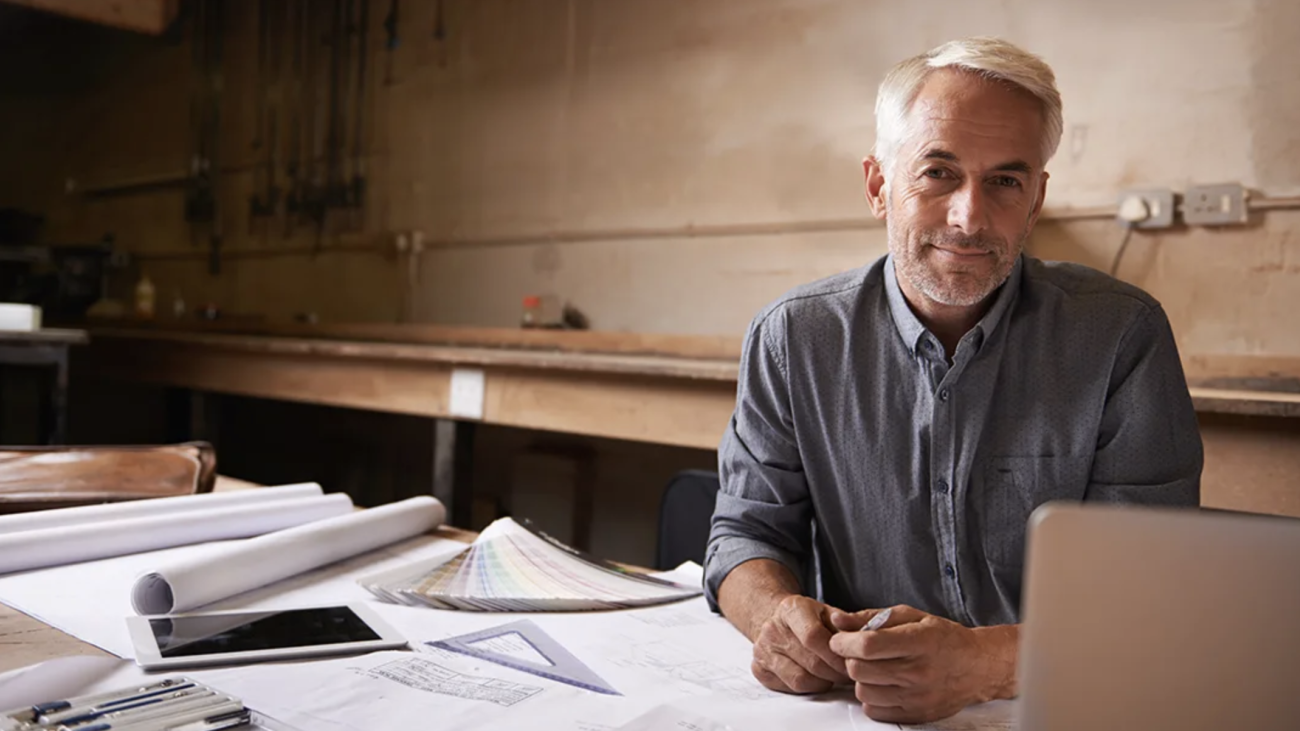Discover the Crucial Abilities and Top Qualities Every Architect Have To Have
As a designer, you recognize that success in your area goes beyond just technical skills. It has to do with blending creative thinking with functionality, cultivating cooperation, and taking care of jobs effectively. Each top quality plays a vital function in your capacity to create spaces that inspire and operate well. Yet what are the certain abilities that can absolutely set you apart? Let's discover the important attributes every Architect must cultivate to grow in this ever-evolving career.
Imagination and Development
Creativity and development are at the heart of architecture, driving the style of spaces that motivate and function flawlessly. You'll constantly discover new materials, techniques, and modern technologies to improve your layouts.
You'll additionally draw inspiration from different resources-- nature, art, and also everyday life can spark fresh concepts. This capability to mix creativity with functionality enables you to resolve complex problems, ensuring your designs satisfy both visual and useful needs.
Solid Interaction Abilities
While making remarkable rooms needs creative thinking, strong interaction skills are just as critical for engineers. You require to share your concepts plainly to customers, professionals, and staff member. Listening is equally as essential; comprehending your client's vision aids you develop styles that genuinely satisfy their requirements.
You'll commonly need to clarify intricate principles in such a way that's simple to comprehend, whether you're providing a proposal or talking about materials. Reliable interaction cultivates cooperation, making certain every person is on the same page throughout the task.
Structure connections is important, as well. When you develop count on and rapport, customers are much more most likely to share their concerns and responses, resulting in much better results.
Lastly, do not ignore the power of body movement and visual help. They can improve your message and make your discussions much more interesting. Strong interaction abilities not only boost your designs yet also reinforce your professional connections in the architectural globe.
Technical Efficiency in Layout Software
As you navigate the ever-evolving globe of architecture, grasping layout software ends up being essential for converting your creative ideas right into substantial plans. Familiarizing yourself with programs like AutoCAD, Revit, and SketchUp will not just boost your layout abilities yet additionally streamline your workflow. These devices enable you to create in-depth illustrations, 3D models, and even simulations that can aid you imagine and offer your principles better.
Exceling in these software program applications likewise boosts your cooperation with contractors and engineers, as everybody can function from the exact same digital structure. Furthermore, your capability to adapt to new innovations will keep you affordable in the area. Routinely updating your skills and discovering new features can establish you in addition to your peers, guaranteeing your layouts are exact and ingenious. Eventually, technical proficiency in design software application is a cornerstone of effective style, assisting you bring your visions to life.
Understanding of Design Principles

Understanding engineering principles also allows you to prepare for potential challenges early in the style procedure. You can make informed choices that improve your designs when you're conscious of how various products act under different conditions. Your styles ought to not just be aesthetically pleasing yet likewise functional and lasting.
Moreover, a solid grasp of design concepts allows you to introduce within restrictions. You can press imaginative boundaries while still adhering to safety requirements. Inevitably, this understanding improves your building practice and establishes you apart in an affordable area.
Job Monitoring Abilities
Effective job monitoring capabilities are essential for architects, allowing you to oversee all elements of a job from perception to completion. You'll require to coordinate with numerous stakeholders, consisting of customers, engineers, and professionals, making sure every person's on the very same web page. Establishing clear objectives, timelines, and budget plans is fundamental; it assists you keep the job on track and within range.
As an architect, you should also be adept at risk administration, recognizing potential issues before they intensify. Strong communication skills are important, allowing you to articulate your vision and motivate your team. You'll gain from being organized and detail-oriented, as this aids enhance processes and stay clear of pricey hold-ups.
Furthermore, versatility is crucial; projects commonly advance, and being versatile enables you to respond efficiently to modifications. Ultimately, your project monitoring abilities can considerably affect the success of your architectural ventures, ensuring you deliver quality outcomes in a timely manner and within budget plan.
Attention to Detail
While managing projects is vital, your focus to detail can make a significant difference in the high quality of your work. Every line you attract, every product you pick, and every small requirements you note adds to the general success of a project. You require to be meticulous, making certain that your styles not just satisfy aesthetic requirements but likewise abide by developing codes and policies.
This watchfulness not just conserves you time and resources however likewise constructs your reputation as a trustworthy Architect. Embrace this skill, and site let it lead your design process, ensuring that your vision is performed flawlessly.
Flexibility and Problem-Solving Skills
As a designer, you'll usually encounter unforeseen adjustments in style and job demands. Your capability to welcome these see this website shifts and find innovative remedies is crucial for success. Staying adaptable in your strategy not just boosts your analytic skills yet additionally maintains your tasks on course.
Accepting Adjustment in Layout
Embracing change in design is essential for designers, particularly when steering evolving customer requirements and arising modern technologies. You need to grow versatility, as projects often change instructions based on brand-new insights or restraints. Being open to alter allows you to discover cutting-edge methods and develop services that reverberate with your clients.
When confronted with obstacles, your analytic abilities come into play. You'll often need to rethink principles and change intend on the fly, making certain that the final end result aligns with the customer's vision while fulfilling safety and governing requirements. By being adaptable and clever, you not only enhance your designs however additionally construct count on with your customers, verifying that you can browse the intricacies of contemporary design effectively.
Ingenious Solutions to Challenges

Adaptability in Task Administration
While navigating the complexities of project management, flexibility becomes a necessary possession for designers. You'll often encounter unforeseen challenges, from design adjustments to spending plan restrictions, needing quick thinking and flexibility. Accepting modification allows you to pivot your approaches and locate ingenious remedies, making certain job success.
Strong problem-solving skills are vital; they allow you to evaluate situations, consider alternatives, and apply effective options on the fly. When collaborating with diverse groups, being open to responses and alternative ideas cultivates partnership and triggers creativity.
Often Asked Questions
What Educational Background Is Required to Become an Engineer?
To end up being an architect, you'll need a minimum of a professional level in design, often a Bachelor's or Master's. Finishing an internship and acquiring licensure via examinations is vital for your job development.
How Crucial Is Networking in the Architecture Field?
Networking's vital in style. It helps you build partnerships, find work chances, and gain understandings from experienced experts. By getting in touch with others, you boost your occupation leads and stay updated on market patterns and developments.
What Are the Common Profession Paths for Architects?
Typical job paths for architects include layout duties in companies, project monitoring, city preparation, and specialized areas like sustainable architecture. Architect. You may also explore training or consulting, relying on your interests and experiences
Exactly How Can Designers Stay Upgraded With Industry Fads?
To stay updated with market patterns, you ought to consistently attend conferences, sign up with specialist organizations, sign up for pertinent magazines, and engage with online discussion forums. Networking with peers also helps you gain insights right into arising growths in style.
What Duty Does Sustainability Play in Modern Architecture?
Sustainability shapes modern design by stressing energy effectiveness, resource preservation, and environment-friendly materials. You'll develop areas that lessen environmental impact, enhance owner health, and react to climate difficulties, making your layouts much click over here now more impactful and relevant.
While designing amazing rooms calls for creativity, strong communication skills are just as crucial for designers. Strong interaction skills not just raise your styles yet likewise strengthen your professional partnerships in the architectural globe.
Efficiency in design software application lays the groundwork for a much deeper understanding of engineering principles, which is crucial for designers.As an architect, you'll typically deal with unexpected adjustments in design and job needs.Accepting adjustment in style is vital for engineers, particularly when guiding developing client requirements and arising modern technologies.